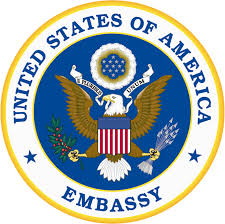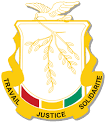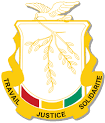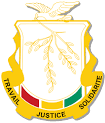Département d'Etat Américain
EXECUTIVE SUMMARY
Guinea is a constitutional democratic republic. In November the Constitutional Court certified President Alpha Conde’s reelection (despite disputed results) with
59.5percent of the vote, following a controversial March referendum amending the constitution and allowing him to run for a third term. International and domestic observers raised concerns about widespread electoral violence, restrictions on freedom of assembly, lack of transparency in vote tabulation, and polling station vote tally discrepancies. Major opposition parties boycotted March legislative elections, resulting in the ruling Rally for the Guinean People winning a supermajority in the National Assembly. Domestic and international observers raised concerns regarding widespread violence and voting irregularities in the legislative elections, including closed and ransacked polling stations. Numerous opposition parties rejected the results of the March legislative and October presidential elections.
The Ministry of Defense oversees the gendarmerie, and the Ministry of Security oversees the National Police. The gendarmerie and National Police share responsibility for internal security, but only the gendarmerie can arrest police or military officials. The army is responsible for external security but also has some domestic security responsibilities. Civilian authorities generally maintained effective control over the security forces. Members of the security forces committed numerous abuses, particularly during the elections and resulting protests.
Significant human rights issues included: unlawful or arbitrary killings, including extrajudicial killings by or on behalf of the government; torture and cases of cruel, inhuman or degrading treatment by or on behalf of the government; arbitrary arrest or detention; serious problems with the independence of the judiciary; serious restrictions on free expression and the press, including violence, threats of violence, unjustified arrests, censorship, and the existence of criminal libel laws; substantial interference with the freedom of peaceful assembly; serious acts of corruption; lack of investigation of and accountability for violence against women; existence of laws criminalizing consensual same-sex sexual conduct among adults, although not enforced; and the existence of the worst forms of child labor.
Impunity for government officials remained a problem. The government took minimal steps to prosecute or punish officials who committed abuses.
Dans la même catégorie




